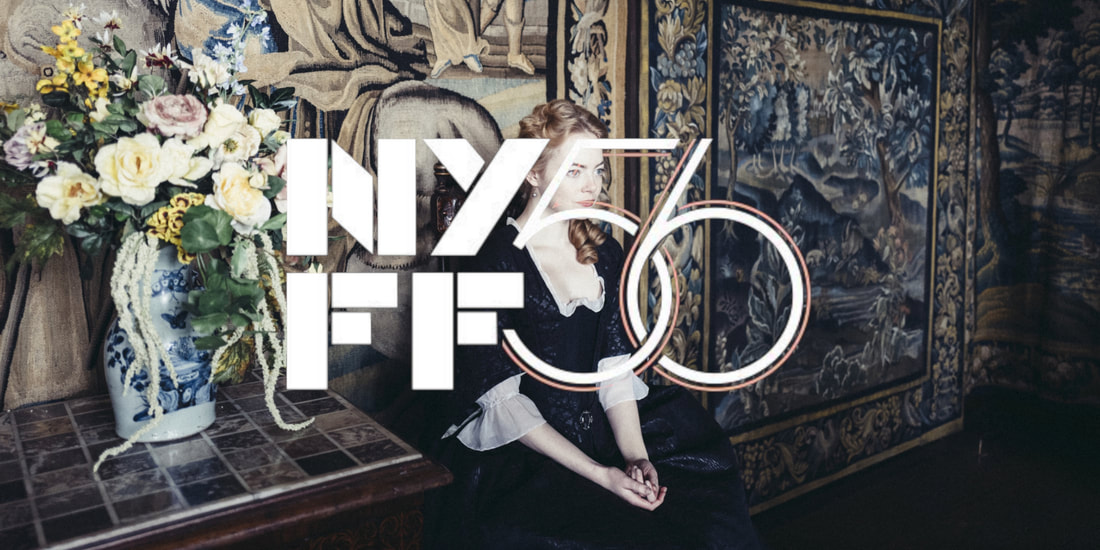One the best film festivals, now celebrating its 56th year (from Sept. 28-October 14) arrives with an incredible selection of world films. Any festival that has new films by the Coen Brothers, Claire Denis, Barry Jenkins, Julian Schnabel and Jean-Luc Godard Is something to be reckoned with. I’ve been coming to this festival ever since the 1970s and still get choked up thinking of all the great movies I’ve experienced here. One doesn’t forget getting spit on by a protesting nun in 1985 on my way in to see Hail Mary by Jean-Luc Godard. I think I yelled back at her, “Godard is better than God!” which made her apoplectic. This year I’ve caught up with a handful so far that have blown me away:
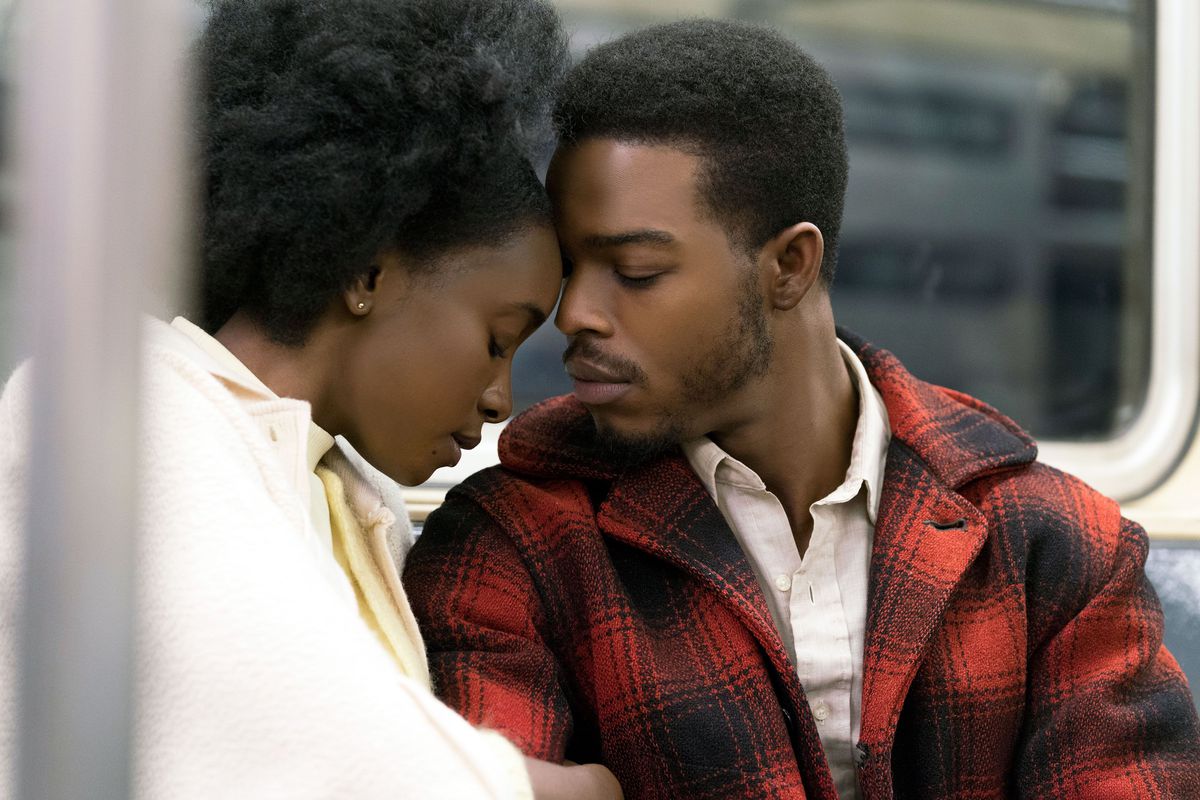
If Beale Street Could Talk. Another stunning film from director Barry Jenkins (Moonlight) based on a novel by James Baldwin, and set in Harlem in the 70’s. Tish (Kiki Layne) and Alonzo aka “Fonny” (Stephan James) have known each other since they were children and are madly in love. But they are torn apart when Alonzo is mistakenly arrested for a serious crime. Jenkins skillfully addresses race and how the legal system is unfairly stacked against these characters. A scene where Trish describes what’s it’s like to sell perfume at a department store says volumes about racial inequality with incredible simplicity and power. But at its heart, this is really a love story. And the two leads are just extraordinary. Kiki Layne just lights up the screen and Stephan James has such a rich, soulful presence, it makes their plight all the more heartbreaking. Regina King and Colman Domingo, as Trish’s parents, are absolutely phenomenal. And there are wonderful cameos by Finn Wittrock, Diego Luna, Dave Franco and Pedro Pascal. What Jenkins does so expertly is shoot two characters talking- such as Tish and Fonny sitting across from each other planning their future, or the two fathers sitting in a bar- and make these scenes incredibly cinematic without losing any of their emotional power.
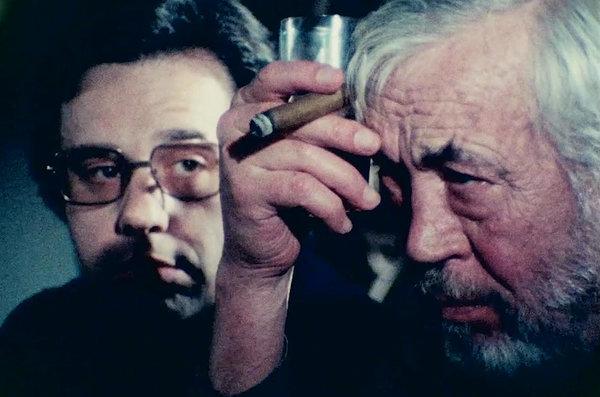
The Other Side Of The Wind. Orson Welles began filming this movie in 1970. Thousands of feet of film languished in a vault in Paris until just recently when archivists, friends and fans successfully raised the money to complete it. The real hero of the story is Award-winning editor Bob Murawski who used extensive notes from Welles to shape it. John Huston is gloriously scary as legendary macho director J.J. Hannaford, having a rough-cut screening of his movie The Other Side Of The Wind for friends, enemies and hangers-on at his ranch house. An actress friend (Lili Palmer) is hosting the party, and other members of Hannaford’s weary production team (Mercedes McCambridge, Edmond O’Brien). Peter Bogdonavich plays the director’s fawning acolyte and Susan Strasberg is fun as a caustic film critic. The movie-within-a-movie is an arty, existential Zabriskie Point-like feel to it, with a beautiful, often nude, Native American girl (Oja Kodar) and a long-haired, handsome boy (Bob Random) following after her. The lead, we discover, walked off the film shoot and is conspicuously absent at the party. The electricity goes out, many drinks are consumed and dirty laundry aired and they all end up motoring off to watch the film at a drive-in. When one of the crew goes to the projection booth complaining that the reels are out of order, the projectionist says, “What difference does it make?” The movie has the self-indulgent, trippy feel of other 70s movies-about-movies like Paul Mazursky’s Alex In Wonderland and Dennis Hopper’s The Last Movie (both directors show up in cameos). It’s a weird movie, but thrilling to finally see. Especially when you consider that right to the end Orson Welles was fearlessly experimenting with the possibilities of cinema.
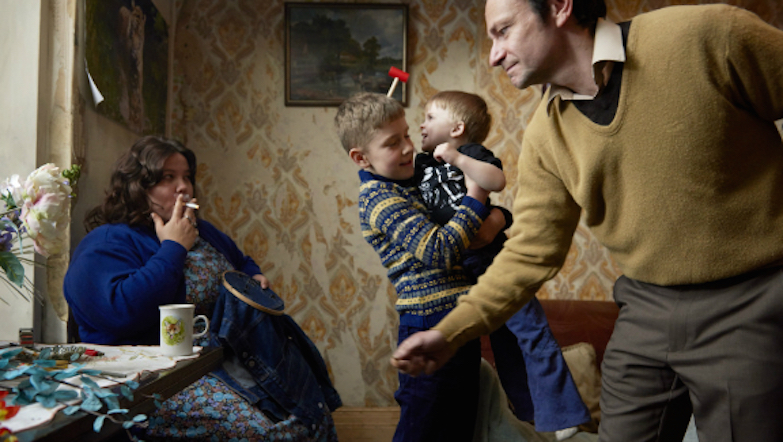
Ray & Liz. Photographer Richard Billingham made a name for himself with alarming autobiographical photos of his family- his alcoholic father and obese tattooed mother in England. This film expands on that by plunging the audience into the squalid house, with Liz (Ella Smith/Deirdre Kelly) plunked down doing Jigsaw puzzles on the table and smoking furiously, and poor husband Ray (Justin Salinger/Patrick Rumer) lying in bed (in flash-forwarded sequences) with bottles lined up on his bureau, in a room filled with wasps. The children fend for themselves, while a menagerie of animals- dogs, hamsters, birds, rabbits pee all over. But there’s a pitch-dark humor to all of it. There are also incredible sequences- when the young boy ends up sleeping rough in a shed on a freezing night, and an end sequence with the father’s weathered face and a Dusty Springfield song playing in the background- that elevates all the nightmarish squalor into art. An amazing film.
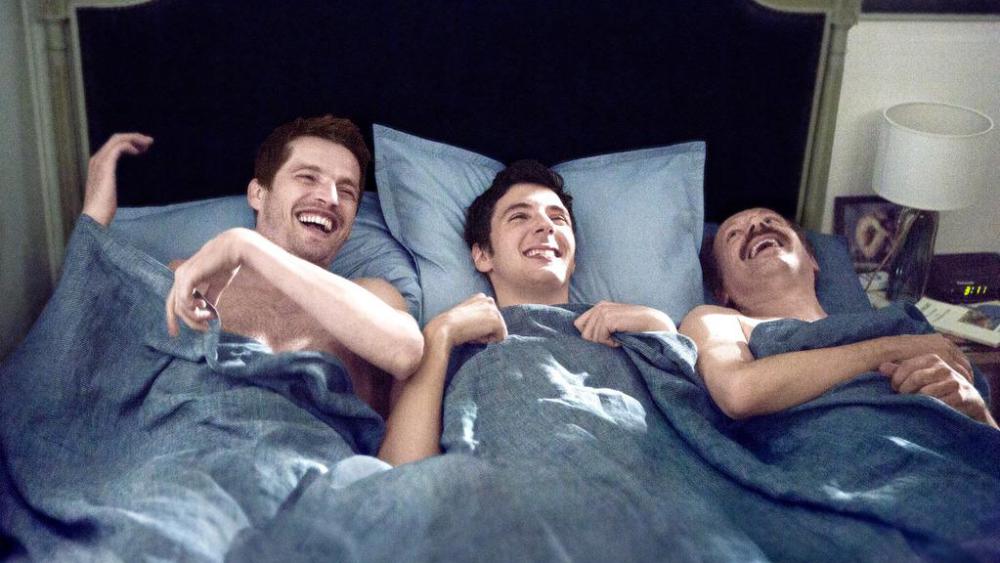
Sorry Angel. Achingly personal film by director Christophe Honore (Love Songs) about an HIV+ gay author Jacques (Pierre Deladonchamps), living with his young son in Paris in the early 1990s. He meets a sexy, much younger, student Arthur (Vincent LaCoste) and tries to keep the young man at a distance because of his compromised health. But the mercurial headstrong Arthur, who is an aspiring filmmaker and experimenting with his own sexuality, refuses to keep at bay. During the course of this complex, deeply moving film, Honore celebrates these characters without resorting to cheap sentimentality. I loved the way it slyly highlighted the important things in their lives- sexuality, mortality, family, literature, film and especially smoking. The wistful heartbreak at the end of this magnificent film is well-earned.
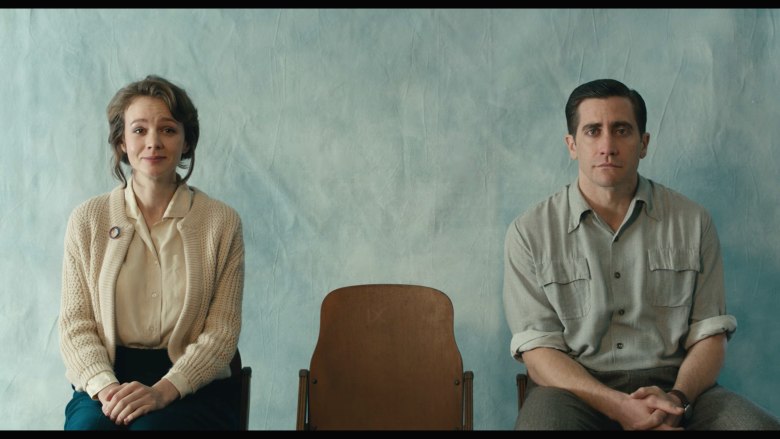
Wildlife. Paul Dano’s directorial debut is based on a Richard Ford novel about a teenage boy, recently moved to Montana in the 1960s, who watches helplessly as his parents’ marriage implodes. Joe (Ed Oxenbould) is a 14-yr-old, with a close relationship with his dad Jerry (Jake Gyllenhaal). When Jerry is fired from his job working at a golf course, he unravels, and ends up running off to join men fighting a raging fire in the nearby mountains. Carey Mulligan plays Joe’s unhappy, deeply frustrated, mom Jeanette who comes undone herself, throwing herself at a wealthy older man (Bill Camp) while Jerry is away. Dano directs with studied precision and careful visual composition, keeping the perspective through the young man’s eyes who desperately tries to make sense of all of it. It’s often painful to watch- you just want to jump ahead in time when Joe can flee from these two damaged souls. Carey Mulligan and Jake Gyllenhaal are extraordinarily good in this bittersweet tale.
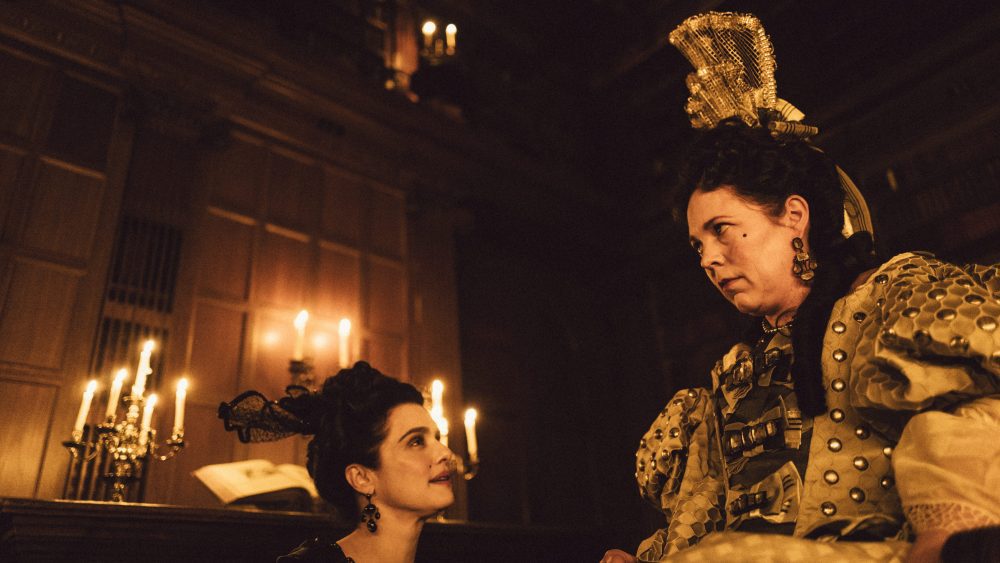
The Favourite. Bitterly sardonic baroque costume drama by Yorgos Lanthimos (The Lobster) about the Court of Queen Anne (Olivia Colman) and two female cousins who scheme to stand by her side. Anne, the 18th Century English Queen, is chronically unwell, with mercurial bursts of anger, and a passion for rabbits, but Lady Sarah Marlborough (Rachel Weisz) is her loyal and constant companion, guiding her through affairs of state and keeping Anne company in the bedroom. A poor relation- Abigail (Emma Stone) shows up, and rises from scullery maid to Lady Malborough’s personal servant and sets her sights on gaining the romantic favor of the Queen. The ruthless battle between the two cousins is fiendish fun, and Yorgos throws in all this surreal modernity. A bizarre court dance is particularly funny, as is a face-slapping romantic interlude in the forest between Abigail and a suitor. Nicholas Hoult is incredibly amusing as a foppish court schemer. The three leads are just glorious, as is the loony, outrageously rude dialogue.

